Revolutionary Roots
Published on January 24th, 2020 by Molly Brind'Amour
“If I can control your food, I can control you,” reads the poster for McDonough Community Garden’s 2019 Feast de Resistance: Black Food Matters event.
For Duron Chavis, McDonough is more than just a space to grow tomatoes. It’s a matter of taking back control, of food justice, of connecting communities with the means of production for the food they eat.
Where Food Meets Justice
“Which came first, the food desert or the redlining?” asks Duron, rhetorically, in the cafe of Lewis Ginter Botanical Garden. As an activist, urban farmer and community engagement coordinator at Lewis Ginter, he already knows the answer.
It doesn’t take an expert to see that certain areas of Richmond are lacking in grocery stores and healthy food options. But as Duron knows, the thread connecting these outcomes stretches further back than just the discriminatory “redlining” housing practices of the 1930s.
As Duron explained, the food inequity is not only a matter of land access and redlining, but connects back to Jim Crow laws, slavery, and colonialism.
Duron expressed that communities of color lack the same resources as other communities, resources that are key to creating an equitable local food system. According to Duron, communities of color were deprived of physical resources like land, tools, funding, as well as intangibles like knowledge and relationships with the right people.
For Duron, the system itself needs to change – people with privilege in an inequitable society need to be challenged to use that privilege to build equity and redefine that system.
“I believe that when we organize together, we can change that,” he said. “Nobody’s really alone.”
Duron believes that the type of work being done with urban gardens, like McDonough, has the power to build resiliency and sustainability, particularly for communities that have experienced trauma.
“Everybody has to eat,” he pointed out. “Food systems, there’s so many opportunities for people to empower themselves and develop collaboration.”
Roots of Change
Duron has been involved with food justice work for the last eleven years, including working with local farmers markets for four years before starting McDonough.
“I met black farmers early on in my…career. They kinda put the bug in my ear about the importance of agriculture,” he explained.
In the early spring of 2012, Duron met Vicky Campbell, the City of Richmond’s Community Garden Coordinator, and found out that the empty plot of land in Woodland Heights was available.
In May 2012, on the corner of Forest Hill Ave and McDonough Street, McDonough Community Garden was born.
The Garden Grows
“First thing we did is, we tried to get some money,” Duron said, laughing.
The community garden group entered pitch competitions and was able to raise enough money to begin transforming the parcel. Duron and just a few others started with 12 raised beds.
They put down cardboard beneath the raised bed boxes, which were filled with six inches of mulch soil. The raised beds were necessary — without them, the plants grown in the garden would be in direct contact with corrupted soil.
Pollutants and cars in big cities mean that urban soil is often contaminated with dangerous chemicals, Duron explained, including lead, arsenic, cadmium and mercury. With the raised beds, he said, McDonough was able to bring in new, uncontaminated soil.
Once the plots were ready to be leased, even more people started coming to the garden. McDonough started planting fruit trees. They won more grants. They put in compost bins, and watched people come to compost, including staff from local restaurant Laura Lee’s, which has a partnership with the garden.
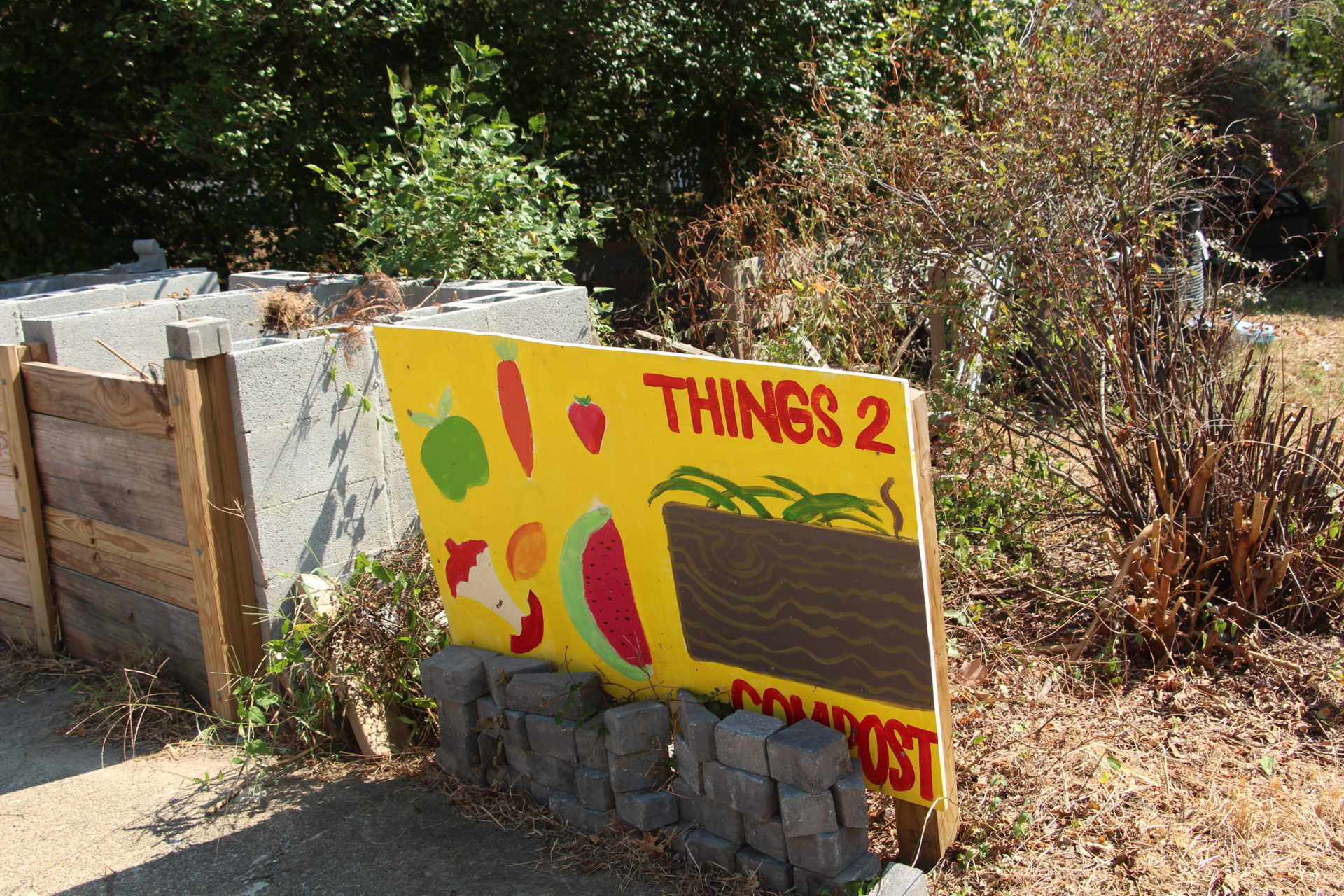
According to Duron, with more raised beds came more community members. It was important to convey the right message: “This is your garden, this is not my garden, this is the community’s garden,” Duron said.
Work in Progress
The garden uses a lease system for its plots, where community members can rent out their own plot to tend to. The plot availability is generally announced via the Facebook page in the spring, allowing prospective gardeners to apply and fill out the necessary waivers.
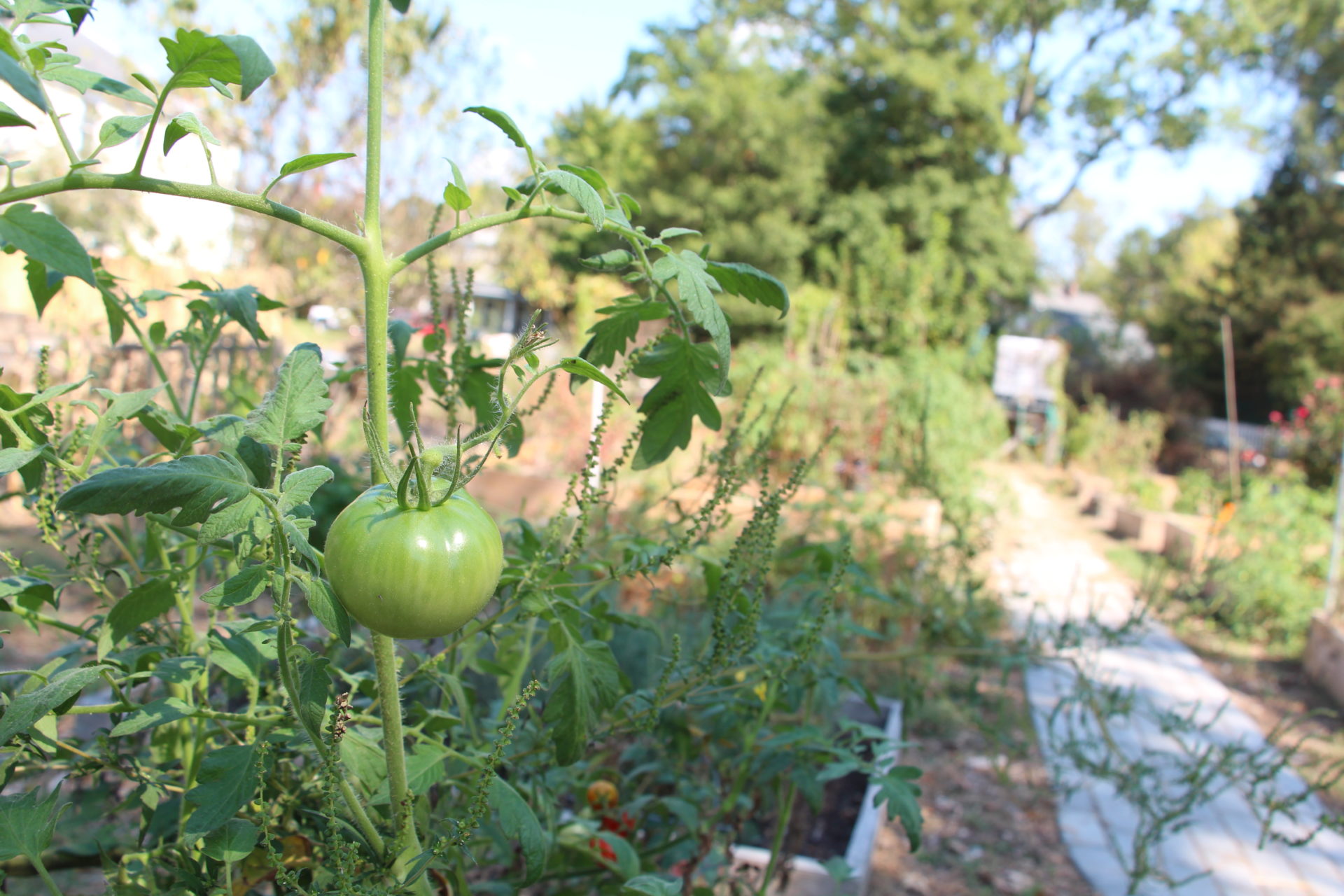
The fee is just $25, and the garden has 20-25 gardens active of its 30 plots. There are five to seven beds not leased to anyone, which are used to grow food for community members to pick or food to be sold to Laura Lee’s.
Most of the “space maintenance” is done by people who rent their own plots. “The best way to have your site maintained,” according to Duron, is to lease plots.
Community work days are held at least as frequently as once every few months, in response to complaints. According to Duron, these work days are successful in bringing neighbors out to the garden for activities like tree planting.
One big win for McDonough was the installation of a pergola structure with benches.
“Shade is of utmost importance,” Duron said. “Once we put in the pergola and benches, it changed the dynamic of the space.”
Duron feels that the regular gardening really makes it into a community space.
“It becomes a community asset,” he explained. “It doesn’t require you to be a gardener to be at that place.”
Meeting at McDonough
According to Duron, people often use the terrace and pergola as a meeting place.
“I see that all the time,” he added.
The garden does host its own events, like Feast de Resistance. But since it’s a community greenspace, community members are welcome to just reach out to host events themselves. McDonough plays host to groups like the Woodland Heights Civic Association that choose to have events in the garden.
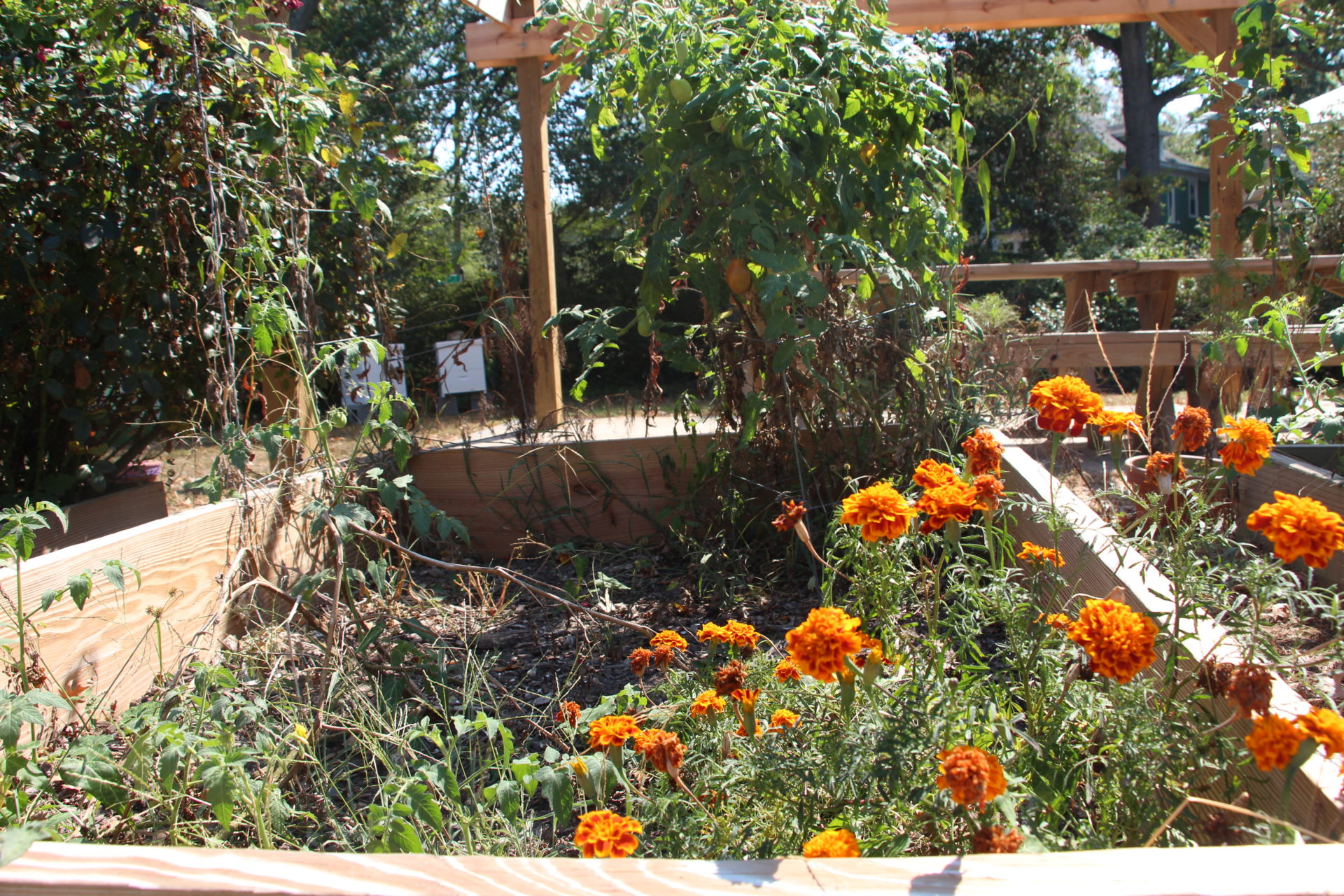
Without staff, there’s no time for formal procedures or surveys when it comes to the garden’s events. Instead, according to Duron, the garden uses Facebook to gather community feedback. The garden team plans events when they’re inspired, and if the reception is good, they’ll know to host the event again.
The farm-to-table dinners have been particularly special to Duron.
“They’ve been really, really, really fun, great opportunity for people to connect and meet folks,” he explained. Duron said he was able to meet with chefs, and “[show] people that garden-to-table is a reality that can be accessed.”
Growing Community
McDonough serves all types of gardeners, with its plots leased by organizations, local families and even some community members who don’t live nearby.
“It’s all types of people,” Duron explained.
“Most of the people that are there have some affinity for food,” he added.
The products of the garden vary, too. Recent harvests yielded very good peaches and pears, according to Duron. Blackberries, peppers, eggplant and tomatoes thrive at the garden, too, and even goji berries were able to grow successfully.
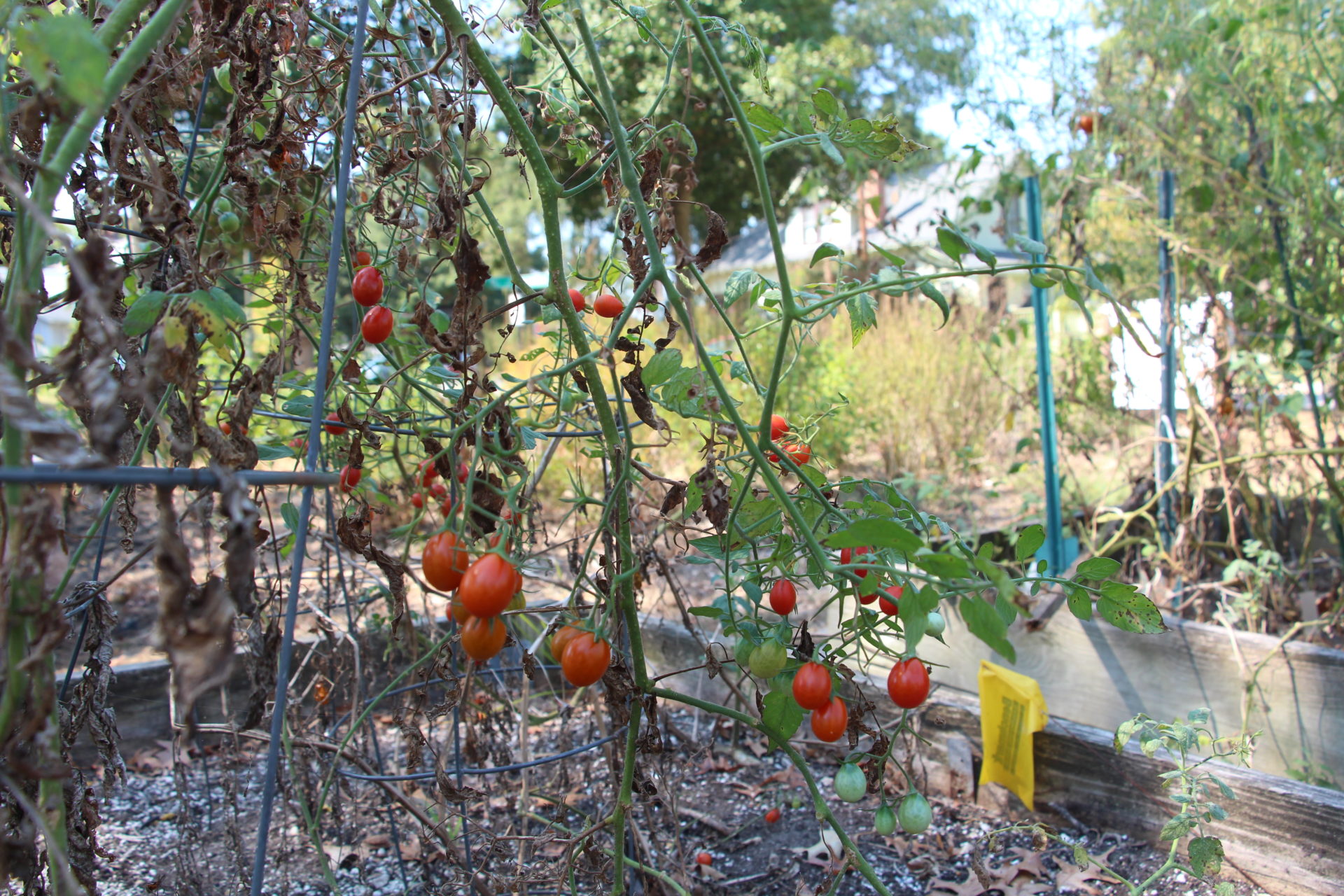
“I was actually pleasantly surprised,” Duron said.
In addition, McDonough’s pollinator garden is in its second year. Native plants like sage and milkweed bring pollinators to the garden, which are necessary for helping the plants fruit.
Today, McDonough is a special place where neighbors meet under the pergola, bring food scraps to the compost bins, test out a new variety of seed, or just pick something to eat.
“People come through to the garden, they just pick stuff on their own,” he said.
Making it Work
But it wasn’t easy to get the community garden to this place, even with the pitch money.
“We didn’t have water, so that was a bit of a challenge,” Duron said.
McDonough started with a big tote, which they were able to get the fire department to fill with water. Eventually, the garden was able to purchase a portable water meter using grant money.
But that meter ended up being stolen. With a complaint to the city, McDonough finally got their own water line installed.
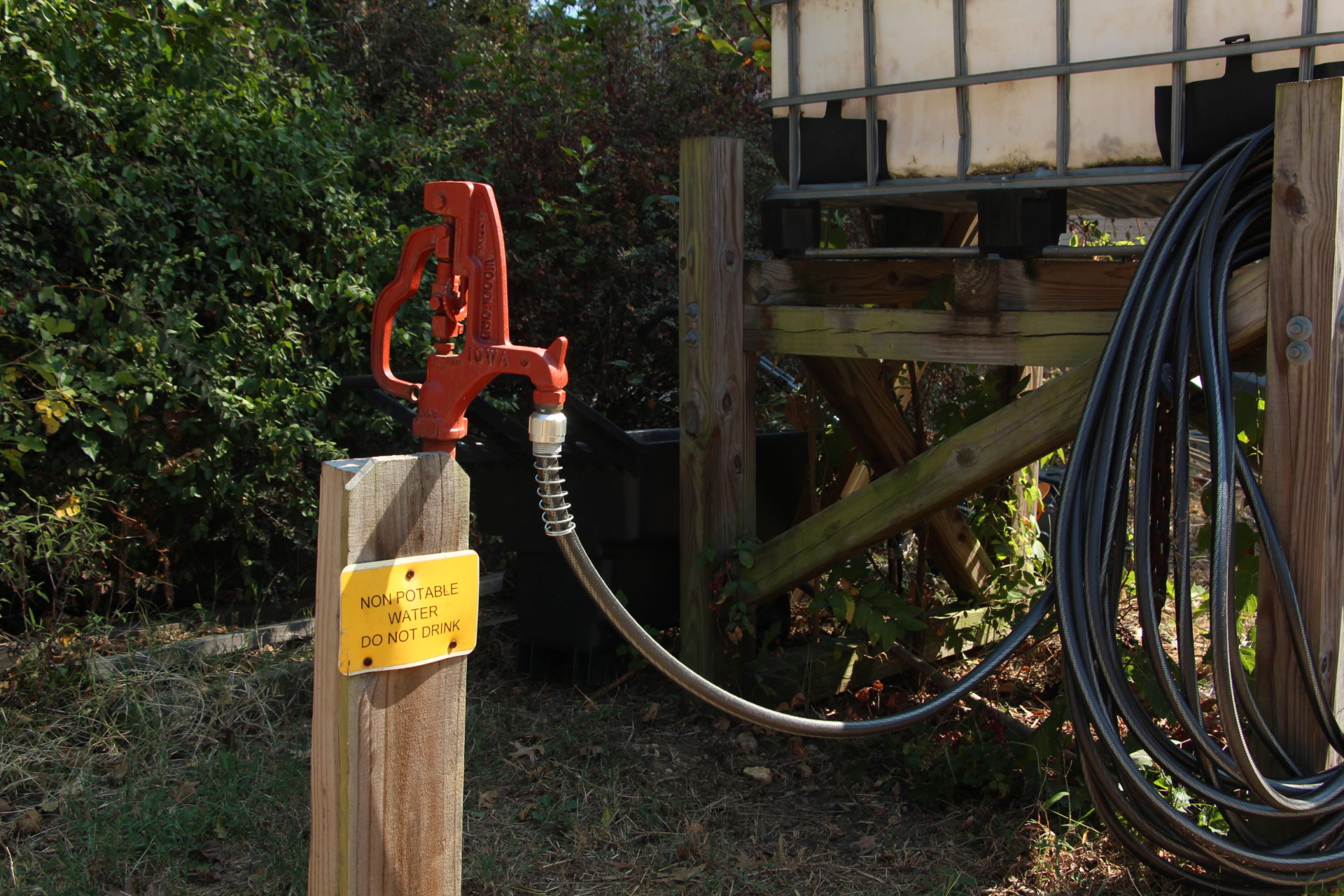
In terms of fiscal stewardship, McDonough has been connected with Enrichmond Foundation for over seven years.
“Enrichmond indicated that it was offering fiscal sponsorship for Richmond Grows Gardens community gardens when the Richmond Grows Gardens program first started,” Duron explained, “as it had already been providing Friends groups fiscal sponsorship at the time.”
Though McDonough doesn’t yet have a staff of its own, Duron hopes this will change one day. One of the difficulties McDonough faces is not having anyone paid to coordinate the events.
“We try to have volunteer coordinators that would do things at the site…which is always a challenge,” Duron said.
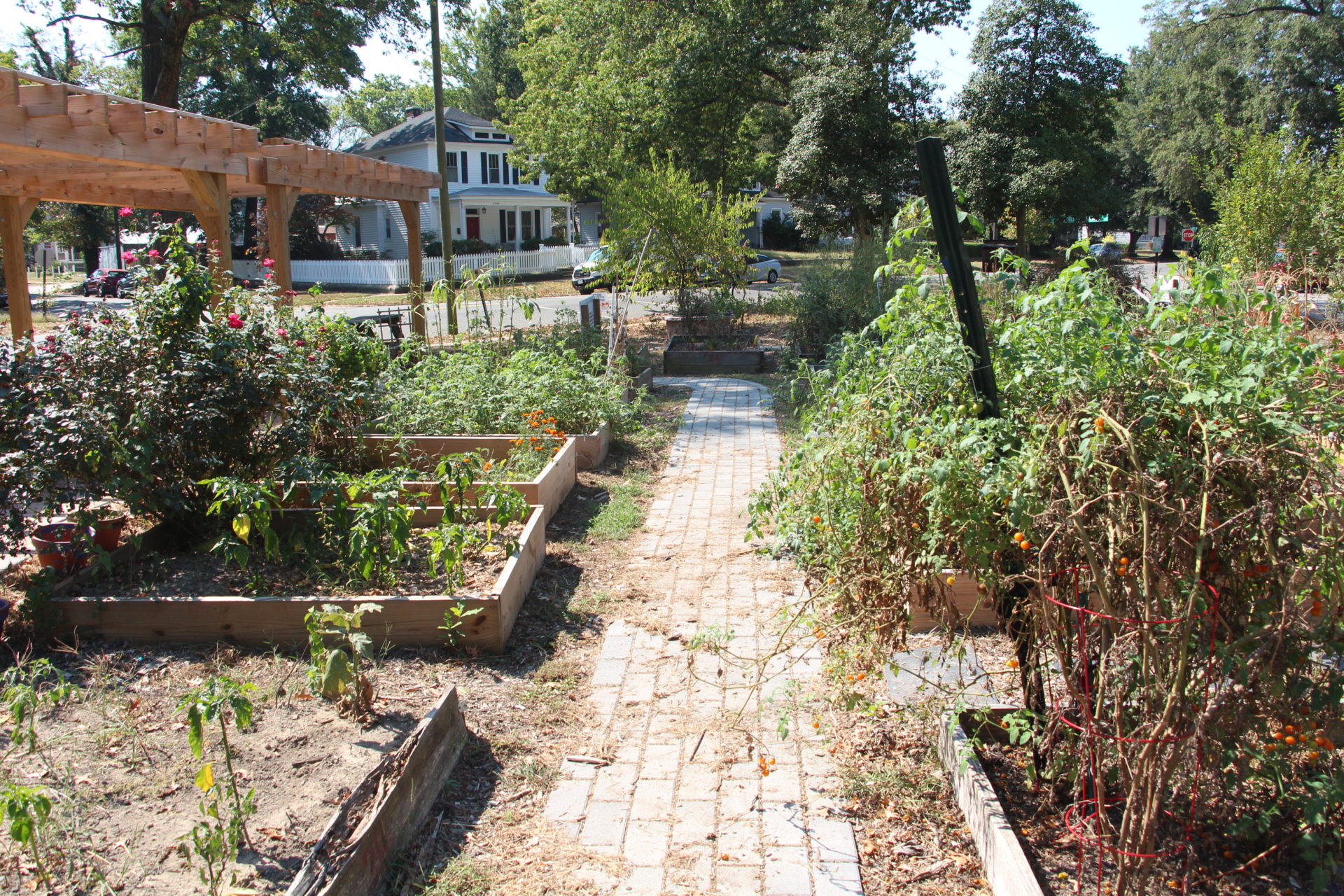
Currently, Duron organizes for the garden through his role as Community Engagement Coordinator with Lewis Ginter Botanical Garden.
Duron is currently in his third year at Lewis Ginter. While the work presents its own challenges, he enjoys that he can get paid for helping to support community gardens like McDonough.
“I get to do something that I would do for free,” he explained, adding that he’s already done this work for free, in the early days of the McDonough garden.
Lewis Ginter Botanical Garden also supports Beautiful RVA, which manages the Ginter Urban Gardener program training people to steward community gardens. The program has placed a beekeeper graduate of the program in the McDonough garden to help educate about bees and tend to the garden’s beehives.
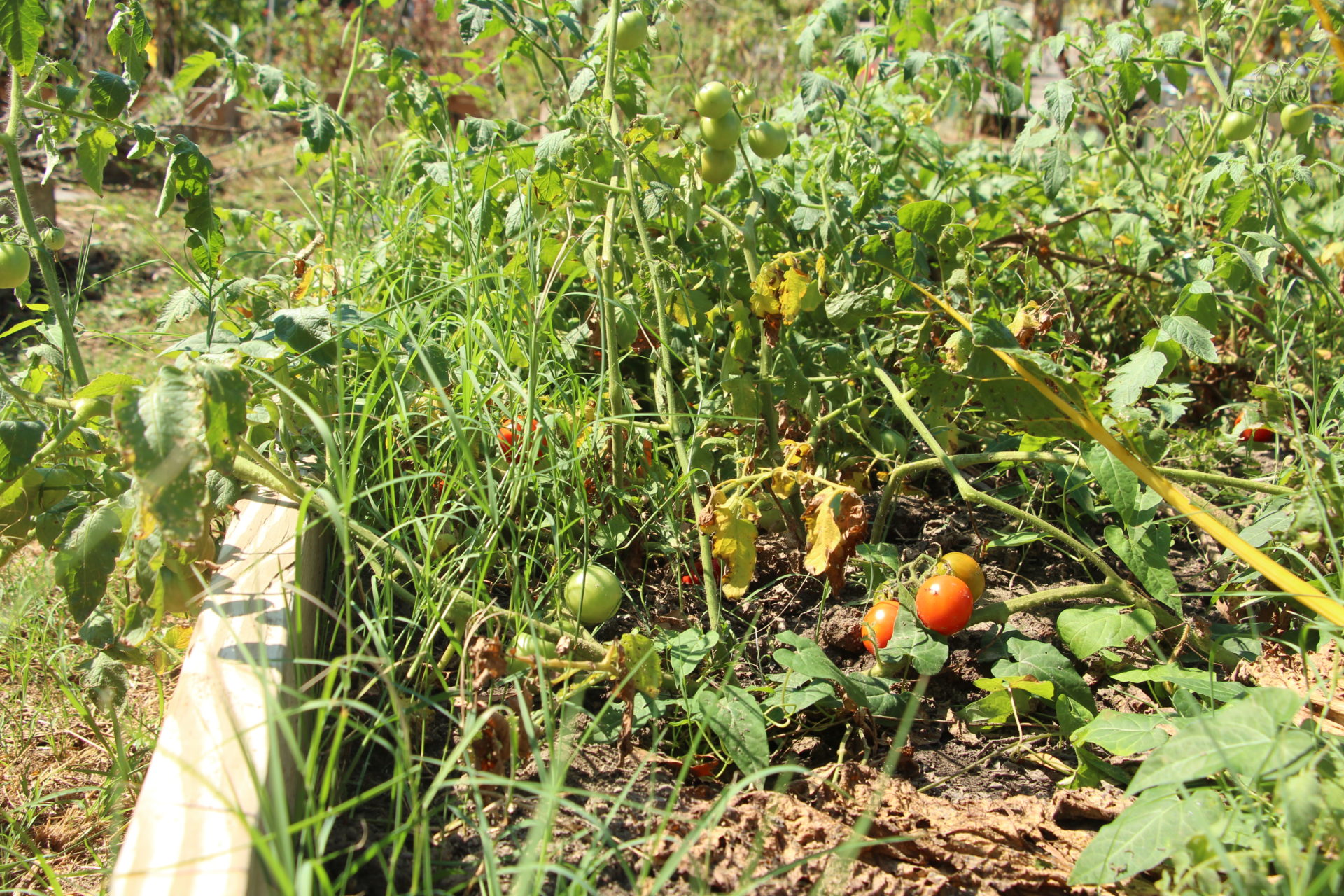
Food for Thought
The Feast de Resistance was a big success — and sold out. The tables under the pergola were strung with lights and set with fresh flowers and gorgeous fruit. The three-course, farm-to-table meal even came with a garden tour for a lesson on sustainable urban gardening.
As icing on the cake, a portion of the proceeds went to Happily Natural Day, the festival Duron formed that celebrates African culture, holistic health, and social change.
It’s a fitting response to that haunting message at the top of the event poster: “If I can control your food, I can control you.”
This time, the gardeners, advocates, foodies and neighbors of the McDonough Community Garden have taken back control.
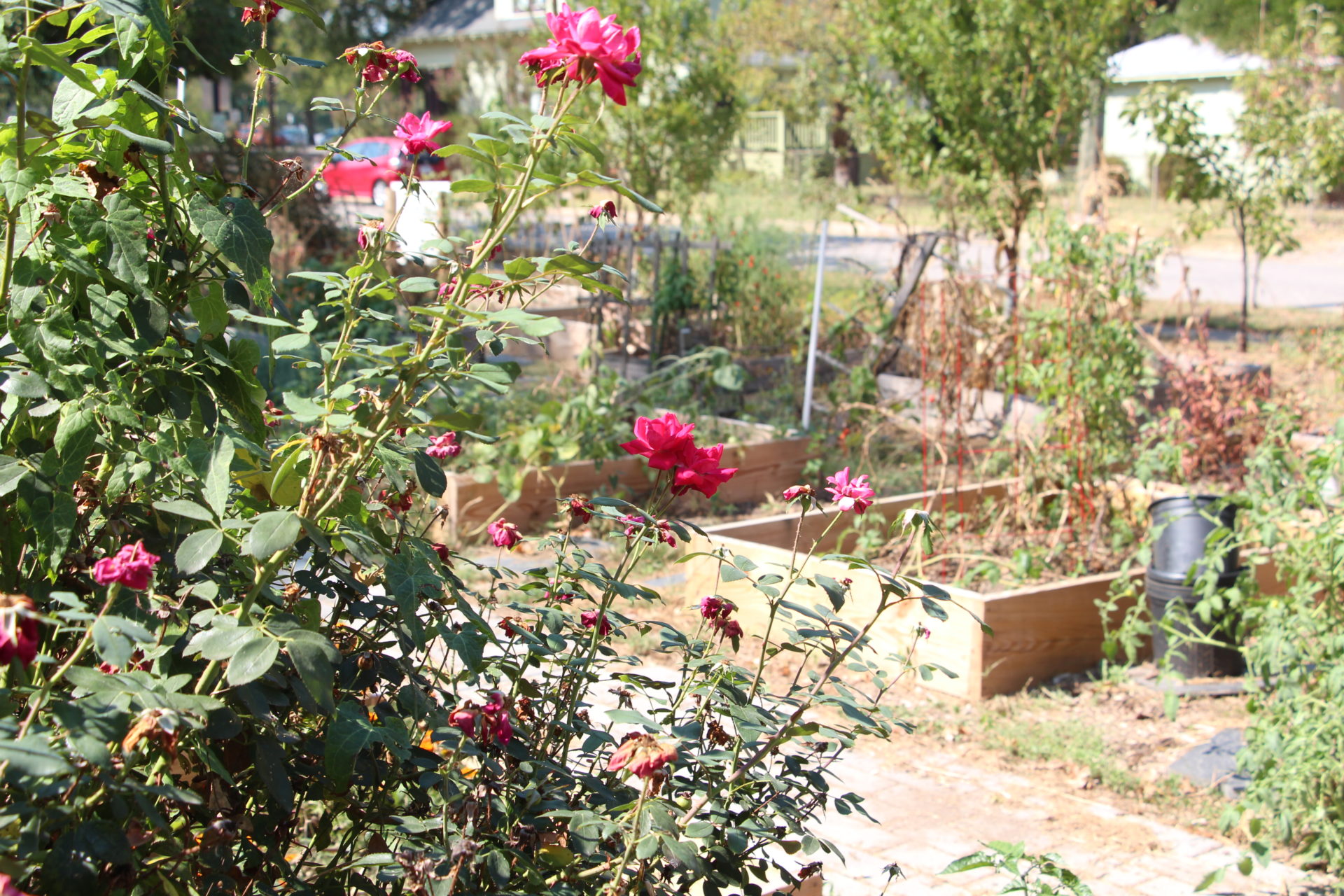
Learn More
McDonough Community Garden is located at 3300 McDonough Street.
Learn more about the garden via its Facebook page.